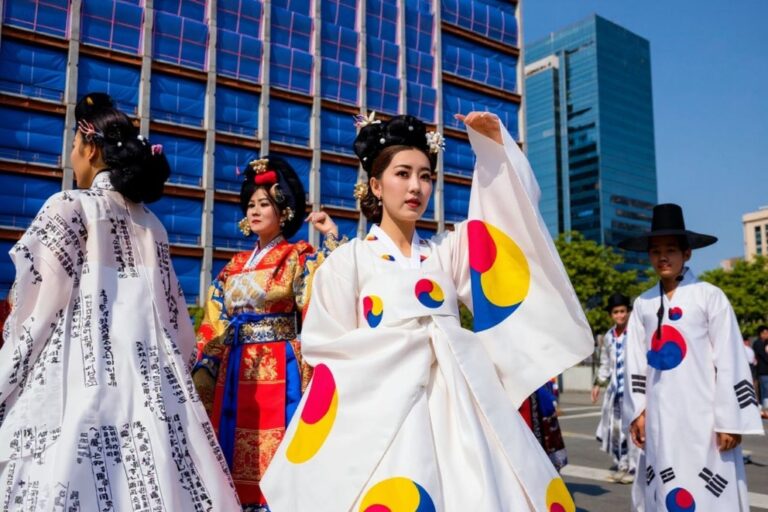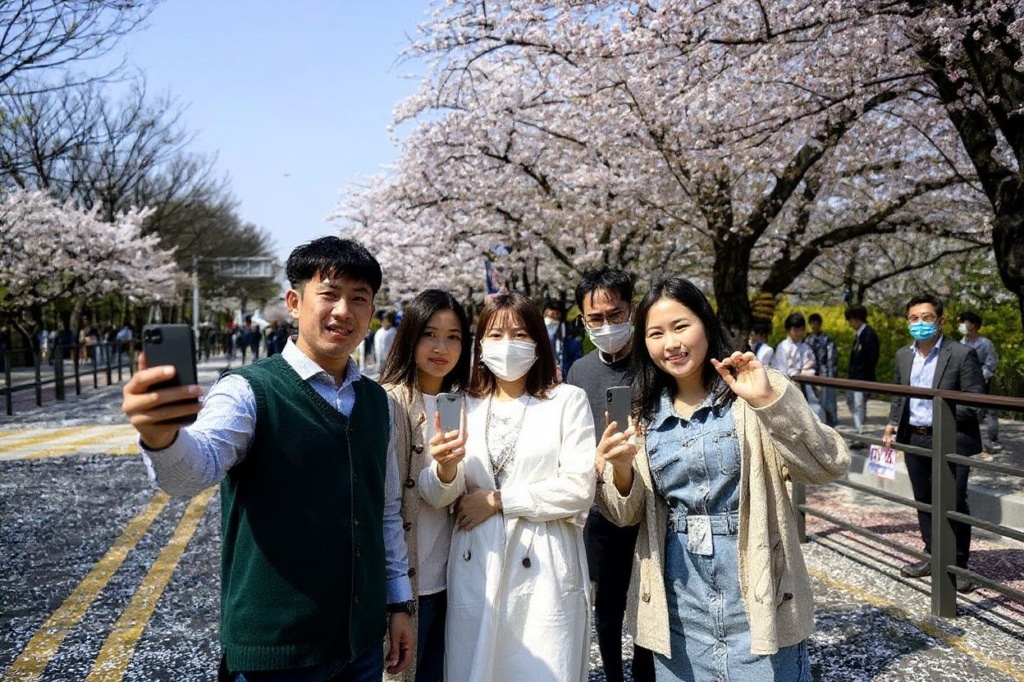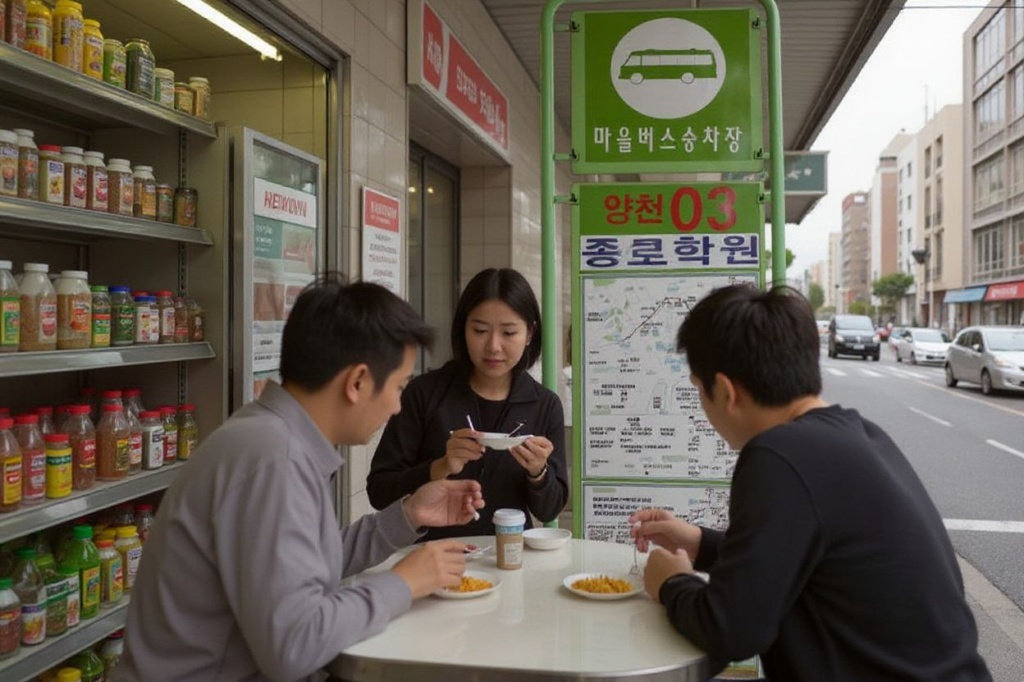
It feels great to learn something new. It’s best when it’s a journey with ups and downs, with just enough hard times to make the accomplishments so much sweeter instead of wearing us out.
How to learn a language quickly or even how to learn the Korean language, however, is not very straightforward.
The route from knowing nothing but “kimchi” and “annyeonghaseyo” to holding a conversation with your K-pop idols is filled with challenges.
The grammar is different, the vocabulary sounds “extremely foreign” and there seems to be an infinite list of tricky nuances.
As confusing as figuring out how to learn the Korean language can be, sticking with it can be a highly rewarding experience.
 Figuring out how to learn the Korean language can be tough at first, but stick it out. A whole new world of culture and traditions could open up to you after.
Figuring out how to learn the Korean language can be tough at first, but stick it out. A whole new world of culture and traditions could open up to you after.
Why figuring out how to learn Korean could be the best thing you do this year
Before we answer how to learn the Korean language, let’s look into the why:
- You’ll know Korean culture so much deeper, from BTS’s lyrics to Pepero advertisements and Korean dramas.
- You can get jobs at Korean companies. Think Samsung, Hyundai, Innisfree, Lotte and more, which produce everything from cars and ships to blenders, facial wash and chocolate-covered pretzel sticks.
- You can study at Korean universities, such as Korea Advanced Institute of Science & Technology and Seoul National University, which are Asia’s best and in the world’s Top 100.
- You’ll improve your brain power. Being fluent in more than one language boosts your memory, critical thinking, problem-solving skills and creativity.
- You can make more friends and network better. As the Nelson Mandela goes, “If you talk to a man in a language he understands, that goes to his head. If you talk to him in his own language, that goes to his heart.”
 People take selfies beneath the cherry blossoms in full bloom along a street in Seoul on April 3, 2023.
People take selfies beneath the cherry blossoms in full bloom along a street in Seoul on April 3, 2023.
Why the Korean language is hard to learn
The US Foreign Service Institue estimates you need to study for 2,200 hours or intensely study for 88 weeks before you become fluent in Korean.
That means if you study for two hours a week, it would take you around 23 years. If you study for four hours a week, that would take you 11.5 years — still too long.
Korean takes a lot of time, effort and patience to grasp for these main reasons:
- It has an exclusive alphabetic system. While reading and writing individual alphabets is straightforward, reading words can be hard.
- Words are arranged differently. Other languages often use a “subject-verb-object” structure. Korean uses “subject-object-verb.”
- What you say has to change according to who you’re talking to. If you’re talking to or about your father, you have to use certain words that show him respect, for example.
- Korean uses single and double consonants as well as many vowels that can be hard to vocalise. It doesn’t reuse sounds much too.
- Korean doesn’t share many common words with English, compared to a language like German. The word “kitchen,” for example is called “cuisine” in French and “cocina” in Spanish. It’s “bueok” in Korean.
 Talking to locals is one of the best ways to improve your pronounciation..
Talking to locals is one of the best ways to improve your pronounciation..
How to learn the Korean language: 5 easy and proven methods
There are many to learn Korean — below are the five best, easiest and fastest ways to do it:
1. Start with the basics
When figuring out how to learn the Korean language, it is important to start with the basics.
There are a few basic words that even locals begin with to get a feel for how to learn the Korean language.
Here are some to get you started:
- Yes – 네 (ne)
- No – 아니요 (a-ni-yo)
- Hello – 안녕하세요 (an-nyeong-ha-se-yo)
- Thank you – 고맙습니다 (go-map-seum-ni-da)
- You’re welcome – 천만에요 (cheon-man-e-yo)
- Excuse me – 실례합니다 (sill-ye-ham-ni-da)
- Ok – 괜찮아요 (gwaen-chan-a-yo)
- I don’t know – 몰라요 (mollayo)
- Sorry – 미안합니다 (mi-an-ham-ni-da)
- Goodbye – 안녕히 가세요 (an-nyeon-ghi ga-se-yo)
There are also loanwords and Konglish that can help you gain confidence and grow your vocabulary (Konglish are English words that have been appropriated by Korean speakers):
- 컵 (keop) = cup
- 카페 (ka-pe) = cafe
- 초콜릿 (cho-kol-lit) = chocolate
- 카메라 (ka-me-ra) = camera
- 택시 (taek-si) = taxi
- 인터넷 (in-teo-net) = internet
The Korean language has its own alphabet called Hangul, which consists of 24 characters.
By familiarising yourself with the alphabet, you’ll be able to read Korean words and form simple sentences, which will boost your confidence from the beginning.
Hangul is relatively easy to learn as it was specifically designed to be accessible. With only 14 consonants and 10 vowels, it’s less for you to memorise.
Languages like Chinese have special tones, sounds and infections that can drastically transform the meaning of a word. Korean is non-tonal, so you don’t have to worry about that.
While Mandarin sounds harder to learn, the US Foreign Service Institute lists Mandarin Chinese and Korean with the same level of difficulty in “Category Four.”.
2. Immerse yourself in Korean culture
Watch Korean movies and TV shows such as Squid Games (with subtitles to start), listen to Korean music and feast on Korean cuisine.
This will not only expose you to the language but also provide valuable context and insights into the Korean way of life.
For many, music does the trick. Listen BTS and Blackpink, as both fuse English and Korean in their hits.
Try to memorise words and get the pronunciation down.
You can also consider joining Korean language exchange groups or finding language partners online to practise your speaking and listening skills with native Korean speakers.
 Try listening to Korean pop songs to learn the language. Blackpink and BTS are a great start.
Try listening to Korean pop songs to learn the language. Blackpink and BTS are a great start.
3. Take advantage of language learning apps
There are several apps available that are specifically designed to help you learn Korean.
Duolingo, Memrise, and Drops provide interactive lessons, vocabulary practice, and even pronunciation exercises.
The gamified nature of these apps makes learning Korean fun and engaging.
Many of these apps offer a spaced repetition system, which reinforces learning through regular review sessions.
To help you figure out how to learn the Korean language, here is a list of apps known to try:
- Rocket Languages
- FluentU
- LingoDeer
- Naver Dictionary
- TenguGo Hangul
- Mango Languages
- HelloTalk Language Exchange
 Squid Games is a popular Netflix show that people have watched all over the world. Try watching it without subtitles to see how much you understand.
Squid Games is a popular Netflix show that people have watched all over the world. Try watching it without subtitles to see how much you understand.
4. Join a course
Self-study is not for everyone. Some of us need a class or course to keep us motivated, keep us on track and show us how we’ve progressed.
While formal courses aren’t as flexible as self-study, they provide structure, guidance and personalisation according to how proficient you are, from beginners to advanced learners.
The best part? Teachers and classmates. Immediate feedback and practice sessions can do wonder to help you reach your goal.
Here are a few online courses to check out:
- 90 Day Korean
- Quick Korean
- First Step Korean
- Italki
- KoreanClass101
- My Language Connect
- Talk To Me In Korean
 Perhaps the best way to answer how to learn the Korean language is to go to Korea.
Perhaps the best way to answer how to learn the Korean language is to go to Korea.
5. Practice regularly and consistently
When thinking about how to learn the Korean language, consistency is key. Set aside some time each day or week to practise Korean.
Create a study schedule that works for you and stick to it. Practice all aspects of the language: reading, writing, speaking, and listening.
You can use a variety of resources such as textbooks, online exercises, language exchange meetups, or language exchange apps to practice different skills.
Incorporating Korean into your daily life, such as labelling objects in your home in Korean or keeping a journal in Korean, will help reinforce what you’ve learned and make it more memorable.

South Korea has some of the best universities in Asia. Source: Yonsei University Global
How to learn the Korean language? Go study there
There are a host of compelling reasons to study in South Korea, including the fact that their universities offer high-quality education and are recognised globally for their academic excellence.
From engineering and technology to humanities and arts, diverse fields of study are available to cater to different interests and career goals. Many programmes are also taught in English.
South Korea boasts some of the best universities in Asia, and there are many exceptional schools to choose from.
The KAIST – Korea Advanced Institute of Science & Technology takes the eighth spot for QS Asia University Rankings 2023.
Yonsei University is ranked 12th, Korea University is 15th, Seoul National University is 17th, and Sungkyunkwan University (SKKU) comes in 18.
The tuition fees can be quite affordable. Bachelor’s or master’s programmes go from US$1,500 to US$21,000 per semester.
International students can also apply for many scholarships, such as the KNU International Graduate Scholarship, which sponsors tuition fees for eligible applicants.
Step beyond campus and you’re either in vibrant cities or other fascinating destinations, including tea farms with over 1,600 years of history or national parks with over 1,700 small and big islands.










